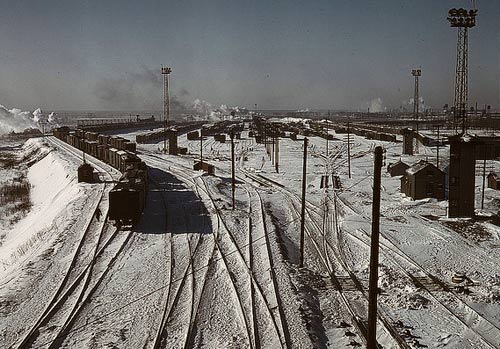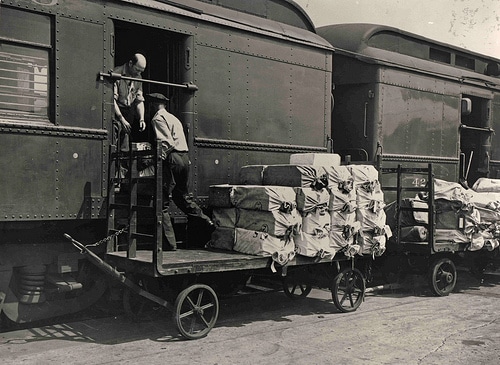I’m currently reading a book Blood, Iron and Gold by Christian Wolmar about how railways transformed the world.

This interesting extract from the political economist Friedrich List, explains some of the economic benefits of railways:
“Railways would carry wood, turf and coal at less than half the present costs. Bavaria, where flour, meat and other foodstuffs are 50 – 100 per cent cheaper than in Leipzig, could export its surplus to the Erzgebirge, the Elbe and the Hanseatic cities. Cheaper food and fuel would partly enhance the well-being of the working classes, and partly lower money wages, increase population and increase the extent of industry. Cheap building materials and low money wages would encourage building and lower the rents in the new and more distant parts of the city.” …. I do not doubt for one minute that this increase in value in Leipzig alone would in a few years exceed the total capital costs of the new railways.” Leipzig-Dresden railway” [1]
In one paragraph, quite a few interesting areas of economic theory.
- New technology leading to lower average cost for business. The introduction of the railways enabled a substantial reduction in costs of transport, leading to lower prices of goods in shops. The new stream railway technology quite possibly had a bigger impact on business than recent technological innovations, such as micro-computers and the internet.
- Theory of comparative advantage. This extract shows Bavaria has a comparative advantage in foodstuffs (50-100% cheaper) Exporting surplus foodstuffs led to increased economic welfare for both Bavaria (exporters) and the cities (cheaper imports). Presumably, exporting food, would give Bavaria more income to spend on goods and services produced in the cities. This theory of comparative advantage is no use, if there are prohibitive transport costs. The railways enable these potential gains to be materialised.

